SUMMARY
This is AI generated summarization, which may have errors. For context, always refer to the full article.
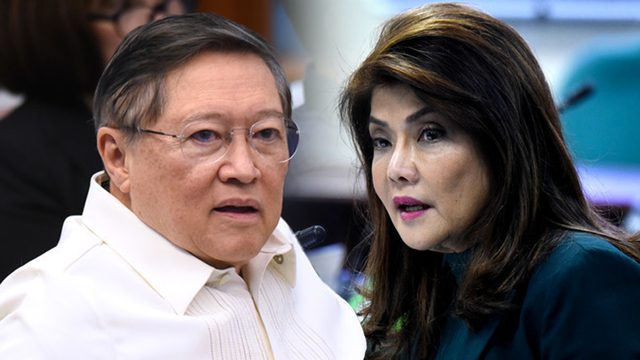
MANILA, Philippines (UPDATED) – Finance Secretary Carlos Dominguez III corrected claims of Senator Imee Marcos that Masagana 99, her late father’s rice program, was an “effective use” of banks.
Masagana 99 was the agricultural rice production program implemented by the late dictator Ferdinand Marcos.
It was discontinued because the government took in massive foreign loans to finance the program. When farmers were unable to pay up, it placed great stress on rural banks, and in turn, affected the country’s overall fiscal health.
The foreign loans were part of the massive debt left by the Marcos patriarch.
Other experts also claimed that the rice variety, developed by the International Rice Research Institute, was highly dependent on fertilizers and pesticides that were derived from both petroleum and chemical derivatives. When oil prices spiraled, the cost of production was so high that farming no longer became a profitable enterprise. (READ: The tragedy of Martial Law)
Senator Marcos proposed the revival of the program to assist farmers affected by the coronavirus pandemic.
“I was the secretary of agriculture who cleaned up the mess that was left by Masagana 99. There were about 800 rural banks that were bankrupted by that program and we had to rescue them,” Dominguez said.
Dominguez was agriculture secretary during the presidency of Corazon Aquino.
Marcos then went on to say that “the success perhaps was not in banking, but the success was in rice exportation.”
Dominguez debunked Marcos again. “We never exported rice [during that time], ma’am,” he told the senator.
Marcos replied: “I prefer to stick to the finance data for now. But in the meantime, iba ‘yung ating data, tsaka na lang tayo magdiskusyon (our data is different, let’s discuss this some other time).”
At that point, Marcos cut off the discussion to tackle other matters related to the pandemic.
President Rodrigo Duterte once said he wanted his own version of the Masagana 99 program.
“‘Yung Biyayang Dagat niya pati ‘yung Masagana 99, that was the time na hindi tayo nag-import talaga ng pagkain,” Duterte said in 2016.
(The Biyayang Dagat and Masagana 99, that was the time when we didn’t import food.)
In 2017, Duterte launched Masaganang Ani 200, which followed a similar scheme and aimed to raise rice yield to around 200 cavans per hectare to stop, if not minimize, importation of rice.
But to date, the Philippines is the world’s top rice importer. (READ: Philippines to remain world’s top rice importer until 2021)
This is the second time that Dominguez and Marcos clashed during the coronavirus crisis.
Last April, Dominguez rejected Marcos’ proposal to defer debt obligations, even calling the recommendation “narrow-sighted.”
“Debt moratorium has not crossed our mind. It was never entertained or will ever be a part of our crisis response measures,” Dominguez said in a strongly-worded statement on April 14. – Rappler.com
Add a comment
How does this make you feel?
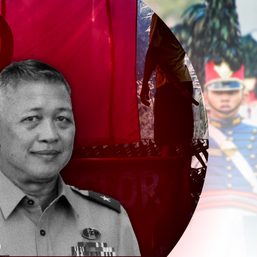
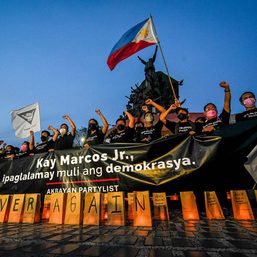
![[Newspoint] The challenge of unsavory company](https://www.rappler.com/tachyon/2024/02/tl-unsavory-company.jpg?resize=257%2C257&crop=238px%2C0px%2C720px%2C720px)

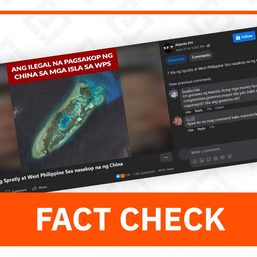
![[Just Saying] Marcos: A flat response, a missed opportunity](https://www.rappler.com/tachyon/2024/04/tl-marcos-flat-response-april-16-2024.jpg?resize=257%2C257&crop=277px%2C0px%2C720px%2C720px)
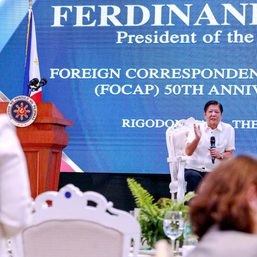
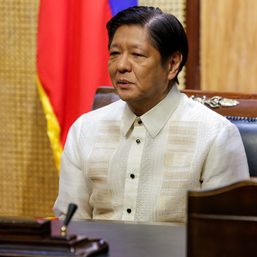

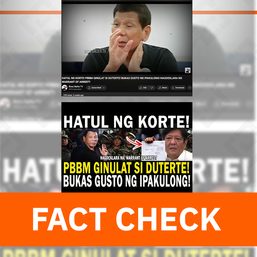
![[WATCH] In the Public Square with John Nery: The Marcoses’ three-body problem](https://www.rappler.com/tachyon/2024/04/pubsq-sq.jpg?resize=257%2C257&crop=390px%2C0px%2C1080px%2C1080px)
![[Newsstand] The Marcoses’ three-body problem](https://www.rappler.com/tachyon/2024/04/tl-marcoses-3-body-problem.jpg?resize=257%2C257&crop=451px%2C0px%2C1080px%2C1080px)
![[EDITORIAL] Kalaban mo ang mga senador na protektor ni Quiboloy](https://www.rappler.com/tachyon/2024/03/animated-quiboloy-kojc-senate-carousel.jpg?resize=257%2C257&crop=365px%2C0px%2C720px%2C720px)
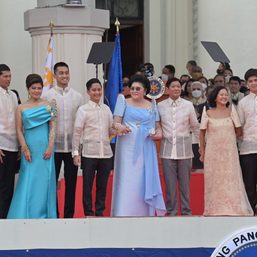
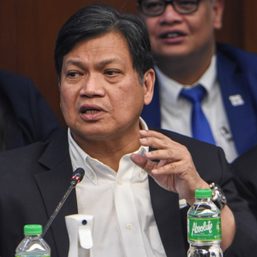
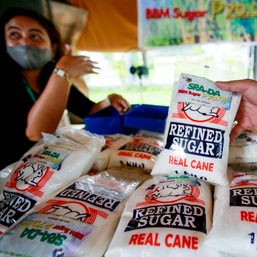
![[Vantage Point] Sugar mess gets messier (Part 2)](https://www.rappler.com/tachyon/2023/04/Sugar-mess-April-1-2023-f.jpg?resize=257%2C257&crop=304px%2C0px%2C720px%2C720px)
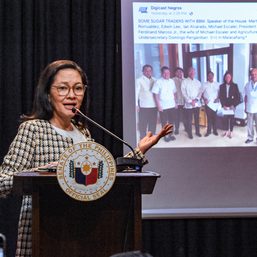
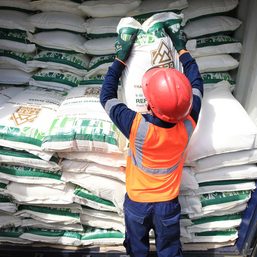
![[Vantage Point] Sugar mess gets messier](https://www.rappler.com/tachyon/2023/03/sugar-smuggling-march-21-2023.jpg?resize=257%2C257&crop=378px%2C0px%2C1080px%2C1080px)
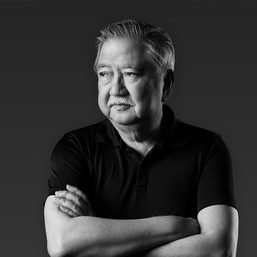
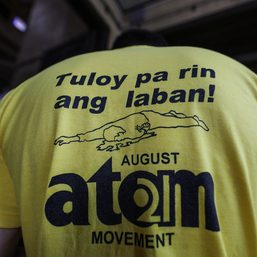
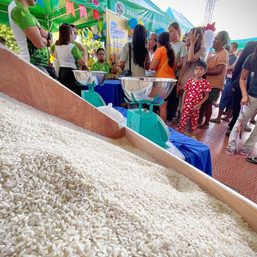
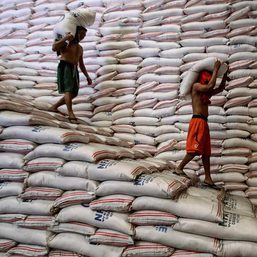
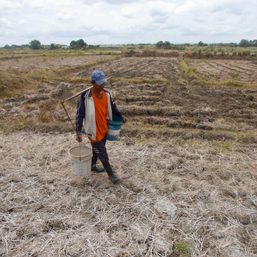
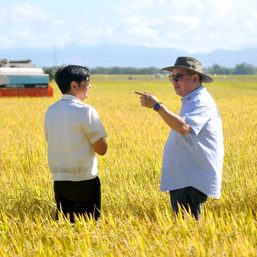
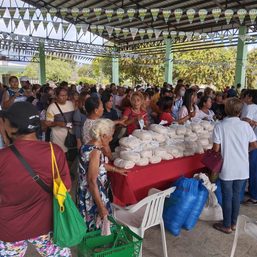
![[OPINION] ‘Some people need killing’](https://www.rappler.com/tachyon/2024/04/tl-some-people-need-killing-04172024.jpg?resize=257%2C257&crop_strategy=attention)
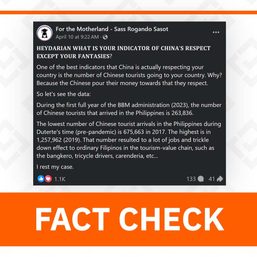
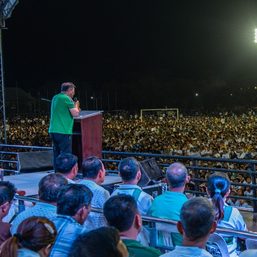


There are no comments yet. Add your comment to start the conversation.